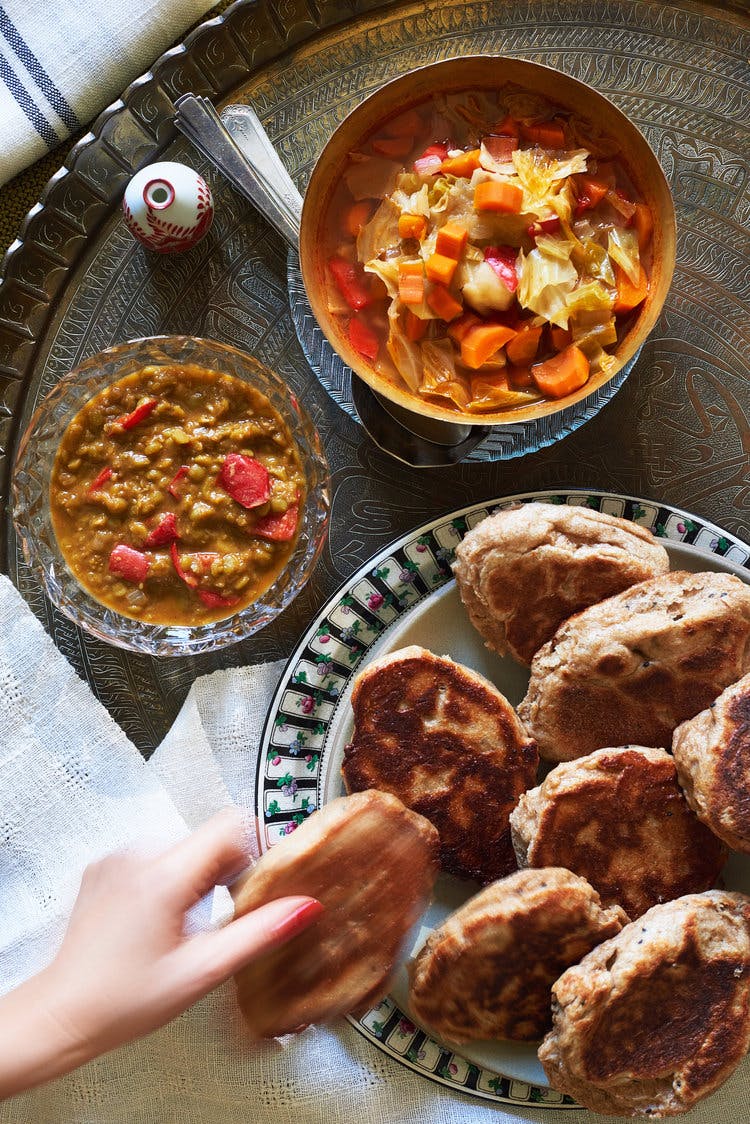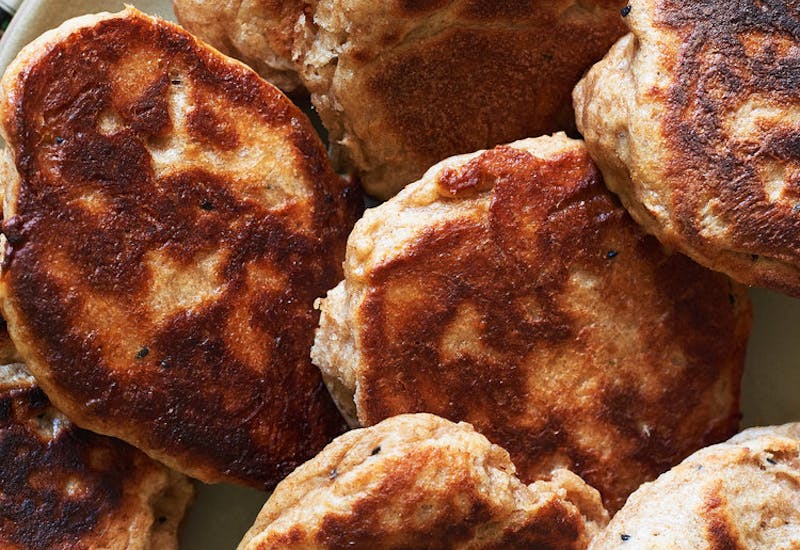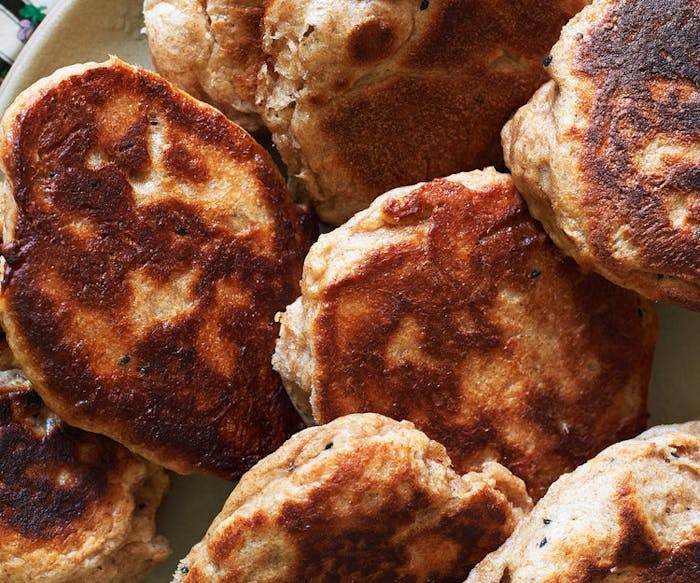When we visited Yafit Amara on Kibbutz Ramot Menashe, 20 miles south of Haifa this spring, she set out to prepare a traditional Ethiopian spread: split peas with dukos, a hot spice blend with chili, dry onion, garlic, and salt similar to berbere, simmered alongside a pot of hearty vegetables and dough for a bread called dabo. The hand-mixed dough did double duty that day: Yafit placed part of it into a large baking dish and tucked it into the oven and formed the remainder into disks called tabunia that are cooked on a skillet, which gave off a subtly sweet smell as they cooked.
Yafit learned these recipes from her aunt Temar, who became a surrogate parent when Yafit was still young. Growing up in Ethiopia, Yafit would follow her aunt as she went to braid the hair of the women in her village. Their family was part of the Tigrayan community living in a village called Tzegedey, but the adults spoke often about living in the Diaspora and, as Yafit explained: Israel was always the goal.
When Yafit was only five, her family joined thousands of Ethiopian Jews fleeing the country, hoping to escape widespread famine and to return to their homeland. Her mother gathered her, her older brother Asher, a baby brother and set out for a two and a half month journey to Sudan with Temar and her husband Mogidu. There, they lived in a bleak refugee camp, where Yafit’s mother and younger brother passed away. Today, Yafit says she only recalls the saddest moments of life in the camp.
Three years after the family set out for Israel, Yafit and Asher arrived with their aunt and uncle, who took the names Ilana and Yitzhak when they moved. The four came with the help of the Jewish Agency just months before Operation Moses, the famous rescue mission in the mid 1980s that brought 8,000 Ethiopian Jews to Israel.
They lived together in an absorption center in Atlit, a town along the water in Haifa. It was here that Yafit started to learn to cook, shadowing her aunt’s every move much like she had when she braided hair in their village. Yafit learned to make injera, the staple bread of the Ethiopian community that doubles as utensil, plunged into vegetable dips like the ones below. She also learned to make dabo, which functions much like challah in the Ethiopian Jewish community, at times cooked over a low heat overnight so it’s fresh for a Saturday meal. When Yafit left to attend boarding school near Tiberias and later joined the Israeli army, she remained close with aunt Ilana, returning to live with her in Afula as a young adult, mastering more recipes.
Today, living on the kibbutz where her brother Asher also settled with his family, Yafit continues to cook Ilana’s recipes in her kitchen. For Israeli Independence Day, she shared some of these traditional Ethiopian dishes with the community. Everyone was excited to try her family recipes and she almost ran out of food before the day of celebrations ended.
There’s one recipe, however, that Yafit still relies on aunt Ilana for: Dukos. Each year at Passover women from Yafit’s community make a new batch to ensure the mix is fresh and kosher for the holiday. Ilana makes two renditions, one spicy and the other tamer. Yafit once tried to document the blend, but was overwhelmed by the process, which requires ingredients to be roasted separately and for different lengths of time before being combined. For now, she’ll leave that in the hands of aunt Ilana.


